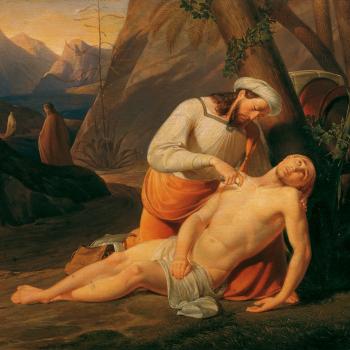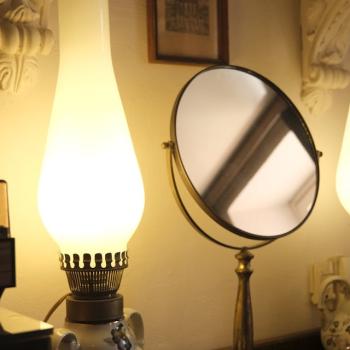Have you noticed how ugly most of our communities are, all the strip malls, concrete boxes, offices, and even churches, void of aesthetic touches? There is certainly “art,” but it tends to be walled away in museums, rather than being part of a living community (as many of the pieces in museums once were). Have you noticed that this is a relatively new phenomenon? In the cover story for the latest National Review, Michael Knox Beran writes about why that is and what the decline of beauty and the rise of ugliness tell us about our civilization.
From Michael Knox Beran The Age of the Ugly | National Review Online:
Compare a modern shopping center to, say, the marketplace of Arles in Provence — it is now called the Place de la République — and the falling-off is incontestable. Where the Old Western man created beautiful forms instinctively, as a matter of course, we New Westerners as reflexively create ungainly ones. The Old Western man, the historian Johan Huizinga observed, insisted on having artistic beauty “in the midst of life”; the New Western man has “set art apart from life.”
Huizinga had a point. There is more artistic power in the façade of the church of Santa Maria — once the Temple of Minerva — in the heart of old Assisi than there is in some American states, if the sequestered art of museums and private collections is excluded from the calculation. We New Westerners build up our museums artistically; the Old Western man built up his communities artistically. Taking to heart Plato’s conviction that we are strung together by God “on a thread of song and dance,” he used music and poetry, and what is musical in architecture and sculpture, to organize his common life ritually and symbolically; artistic beauty, for him, was a begetter of civil harmony.
The New Western man, by contrast, looks upon art as a superfluous luxury: He shuts it up in little mausoleums of dead culture, in museums and concert halls, remote from his daily preoccupations. The rise, in the last few centuries, of institutions devoted to embalming the remains of displaced art is characteristic of a civilization in which beauty is ceasing to be a living force; labor that would once have been bestowed on new creation is devoted instead to sanctifying the relics.
If the New Western man delights to heap up, in his art mortuaries, fragments of Old Western plastic art — scraps of frieze and pediment, flèche and portico — he does not emulate his forebears by introducing this spatial poetry into his own everyday life; his schools, offices, and shopping centers are inartistic. Nor is he keener to resurrect the Old Western time-poetry, its festival and ritual infrastructure. Such rubrics as the Athenian calendar of sacrifices, the Roman fasti, and the Christian missal brought choral and dramatic arts (Attic tragedy, medieval mystery plays, the drama of creation embodied in the church year) into the heart of the common life of the community. A glance at The Procession of Saint Gregory in the Très Riches Heures of the Duc de Berry, or The Piazza San Marco at Carnival Time, by Heintz the Younger, reveals how prosaic, by comparison, is the artistry of our own holiday culture. “The festival requires style,” Huizinga said. “If those of modern times have lost their cultural value, it is because they have lost style.” . . .
[Marcel] Proust [whom Mr. Boran discusses in the article] helps us to see that the Old Western man suffused his ordinary life with works of artistic beauty not only to endow it with wholeness and coherence, but also that he might apprehend, however faintly and imperfectly, the undiscovered country that lies on the other side of its frontiers. And indeed the classic works of art that did so much to order the life of the Old Western community — the sculpture, the columns, the music, the liturgies and the poetries — have in common with Proust’s art the power to illuminate our passage through nature to eternity.
*Behind a paywall, but it will only cost you 25 cents!
HT: David H. Bergquist












